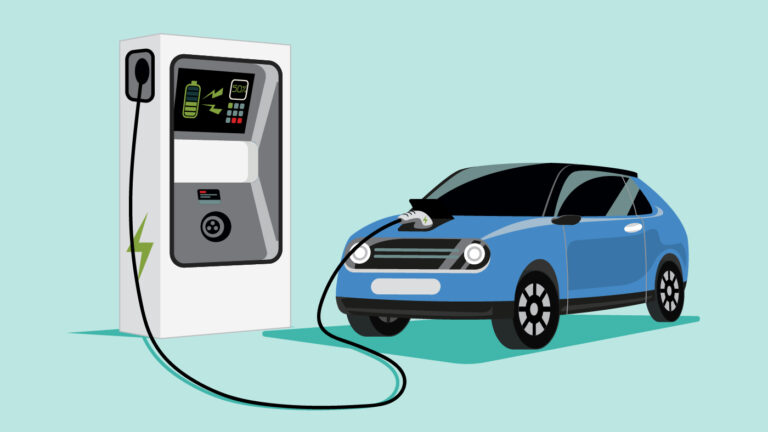
Introduction
An electric vehicle (EV) is a vehicle that can be powered by an electric motor that draws electricity from a battery and is capable of being charged from an external source. EVs are typically zero-emission vehicles, meaning that they do not produce any harmful pollutants or greenhouse gases.
EVs have been around for over a century, but they have only recently become a viable alternative to gasoline-powered vehicles. This is due to a number of factors, including the increasing availability of battery technology, the rising cost of gasoline, and government incentives for the purchase of EVs.
Types of EVs
There are two main types of EVs: battery electric vehicles (BEVs) and plug-in hybrid electric vehicles (PHEVs). BEVs are powered exclusively by electricity, while PHEVs have both an electric motor and a gasoline engine. PHEVs can be driven on electric power alone for a limited distance, after which the gasoline engine kicks in.
Benefits of EVs
There are a number of benefits to owning an EV. These include:
- Zero emissions: EVs produce no harmful pollutants or greenhouse gases, making them a more environmentally friendly option than gasoline-powered vehicles.
- Lower operating costs: The cost of electricity is typically much lower than the cost of gasoline, so operating an EV can save you money on fuel costs.
- Quiet operation: EVs are very quiet, which can be a major advantage in urban areas.
- Smooth acceleration: The electric motor in an EV provides instant torque, which gives the vehicle very smooth acceleration.
Drawbacks of EVs
There are also a few drawbacks to owning an EV. These include:
- Limited range: The range of an EV is typically limited by the size of its battery. However, the range of EVs is increasing all the time, and there are now a number of BEVs on the market that have a range of over 200 miles.
- Long charging times: It can take several hours to fully charge an EV. However, there are now a number of fast-charging stations available, which can reduce the charging time to as little as 30 minutes.
- High purchase price: The purchase price of an EV is typically higher than the purchase price of a gasoline-powered vehicle. However, the lower operating costs of an EV can help to offset the higher purchase price over time.
The Future of EVs
The future of EVs is very bright. The demand for EVs is growing rapidly, and there are now a number of major automakers that are investing heavily in EV technology. As the technology continues to improve and the cost of EVs continues to come down, EVs are expected to become a mainstream form of transportation in the years to come.
Conclusion
EVs are a promising new technology that has the potential to revolutionize the way we travel. They are more environmentally friendly, have lower operating costs, and are very quiet. As the technology continues to improve and the cost of EVs comes down, they are expected to become a mainstream form of transportation in the years to come.
Additional Information
- Here are some of the major automakers that are investing in EV technology: Tesla, General Motors, Ford, Nissan, BMW, and Toyota.
- Here are some of the countries that are leading the way in the adoption of EVs: Norway, the Netherlands, Iceland, and Sweden.
- Here are some of the government incentives that are available for the purchase of EVs: tax credits, rebates, and free parking.
I hope this essay has given you a better understanding of electric vehicles. If you have any questions, please feel free to ask.
